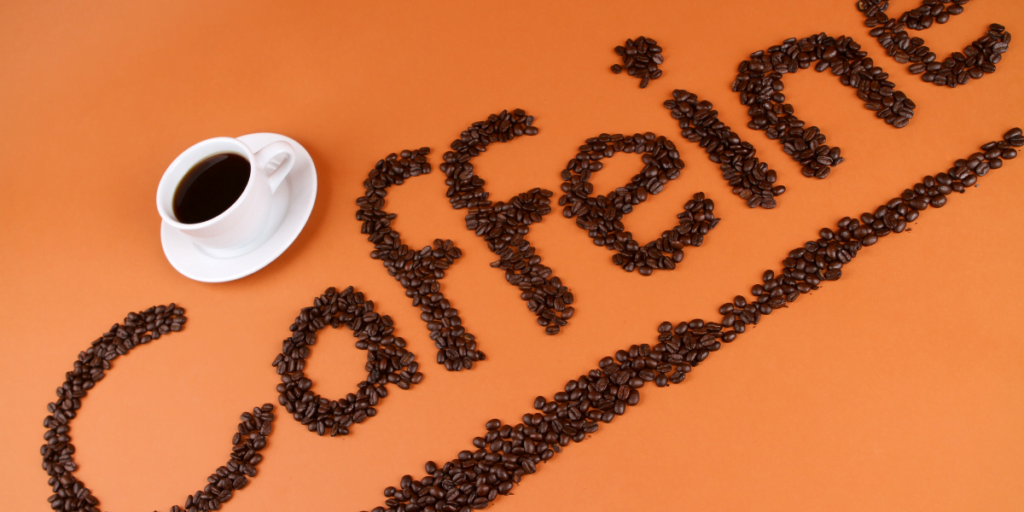Just picture me there, my gaze fixated on my perfectly whisked, steaming cup of matcha – a green tea elixir promising to infuse my day with unrivaled focus, mental clarity, and productivity. After restless nights or those brisk dawn awakenings, I find myself drawn to matcha’s vivid emerald allure, which holds a Zen-like promise of seizing the day with unprecedented vigor.
As I savor that initial sip, a pressing question echoes: “How long until this matcha works its magic?” Stay with me, my fellow matcha enthusiasts, as we embark on a revealing journey to decipher the timing of matcha’s extraordinary energy surge, unveiling the secrets of this ancient beverage.
Table of Contents
- 1. Matcha’s caffeine content and absorption time
- 2. The difference between caffeine and L-theanine in matcha
- 3. Slower absorption for longer alertness
- 4. The amino acid L-theanine slows caffeine absorption
- 5. Matcha caffeine vs brewed coffee caffeine
- 6. No crash after drinking matcha
- 7. Matcha’s mental boost and alertness effects
- 8. Factors affecting matcha’s absorption time
- 9. Matcha’s effect on sleepiness
- 10. Personal differences in matcha’s effect on alertness.
1. Matcha’s caffeine content and absorption time
Matcha’s caffeine content, at approximately 25mg per serving (1g), is significantly lower than that of brewed coffee, which typically contains around 125mg of caffeine.
However, how caffeine is absorbed in the body from matcha differs from coffee. For instance, it can take between three to six hours for matcha’s caffeine to be fully absorbed into the bloodstream, while it takes just minutes for coffee.
This slow release, combined with the action of L-theanine and other beneficial compounds in matcha, promotes increased alertness without jitteriness, providing a more sustained mental boost. This effect may vary with individual differences and matcha quality.
2. The difference between caffeine and L-theanine in matcha

The powerful combination of caffeine and L-theanine in matcha offers numerous benefits for individuals seeking enhanced mental performance and alertness. L-theanine, an amino acid found in much higher concentrations in matcha than regular green tea, has been proven to stimulate the brain’s alpha waves, promoting a state of alertness without the jittery side effects commonly accompanying coffee consumption. Along with caffeine, L-theanine improves reaction time, cognitive function, and overall productivity. Embrace matcha’s natural, synergistic effects for a balanced mental boost without the crash.
3. Slower absorption for longer alertness
Caffeine absorption occurs slower with matcha than with brewed coffee, leading to longer-lasting alertness. This is due to the amino acid L-theanine and other antioxidants in matcha that slow down caffeine absorption, gradually increasing caffeine levels in the bloodstream. The effects of caffeine in matcha can last up to six hours, providing a steady stream of energy without the crash commonly experienced after consuming coffee. This characteristic of matcha contributes to its popular reputation as a beneficial source of natural energy and mental boo.
4. The amino acid L-theanine slows caffeine absorption
One key factor that sets matcha apart from other caffeinated drinks is the presence of the amino acid L-theanine. This unique compound found in matcha is responsible for providing a calm yet alert state to drinkers due to its ability to increase alpha brain waves. Significantly affecting how caffeine is absorbed into the bloodstream, L-theanine promotes a slow, gradual release of caffeine from matcha, lasting around 6-8 hours. As a result, matcha drinkers experience a sustained energy boost without the rapid spike, slump, or jitters often associated with coffee consumption.
5. Matcha caffeine vs brewed coffee caffeine

Matcha and coffee are both popular choices for a caffeine boost, but how do they compare? On average, an 8-ounce cup of coffee contains about 150mg of caffeine, while the same amount of matcha comes in at approximately 70mg. One major difference, however, is that matcha provides a more stable energy lift due to the presence of the amino acid L-theanine. This calming compound helps prevent those dreaded caffeine rollercoasters, leading to a smoother, sustained energy increase without any jitters or sudden crashes. So, matcha might be the better alternative to your morning cup of joe, depending on your preference.
6. No crash after drinking matcha
Drinking matcha tea offers a unique experience, providing a gentle, non-jittery energy boost without the crash often associated with coffee. Consuming matcha results in a steady release of caffeine, lasting around 3 to 6 hours, making it a more sustainable source of energy throughout the day. L-theanine’s presence further enhances matcha’s benefits, promoting calm alertness and mental focus. As a result, matcha drinkers can enjoy enhanced productivity without the negative side effects coffee may bring.
7. Matcha’s mental boost and alertness effects

Matcha is known for its extraordinary mental boost and alertness effects, making it a popular choice for those seeking enhanced cognitive function. It contains a unique combination of amino acids and caffeine, which work together to provide an instant energy uplift that lasts between two to six hours. Regular matcha drinkers have reported improved memory, increased alertness, elevated moods, and better concentrative abilities. Its high content of the amino acid L-theanine promotes the production of alpha waves in the brain, resulting in a state of relaxed alertness, general happiness, and well-being.
8. Factors affecting matcha’s absorption time
Several factors play a role in the absorption time of matcha, including individual metabolism, quantity consumed, and how it is combined with other foods or liquids. Typically, the minimal amount of caffeine in matcha, approximately 25mg per serving, is slowly released into the bloodstream, taking about three to six hours for full absorption. This gradual process, along with matcha’s unique combination of polyphenols, flavonoids, phytonutrients, antioxidants, and amino acids, produces a gentle stimulating effect, allowing individuals to focus and be productive without experiencing the jitteriness often associated with coffee.
9. Matcha’s effect on sleepiness
Matcha, a popular green tea powder, is known for having both stimulating and calming effects on the body. Within 30 minutes of consumption, matcha drinkers often report experiencing a state of relaxed alertness that can last up to 4-6 hours. This unique sensation is attributed to the presence of L-theanine, an amino acid that promotes relaxation without causing drowsiness. Moreover, the effects of matcha on energy levels and focus can vary among individuals, and some may experience a more pronounced impact on alertness than others.
10. Personal differences in matcha’s effect on alertness.

The effects of matcha on alertness can vary significantly between individuals due to personal differences. As matcha is rich in antioxidants, L-theanine, and caffeine, it can offer multiple health benefits, such as promoting relaxation and improving short-term focus. Studies show that the ingestion of matcha can result in deep relaxation and alertness within 30 to 40 minutes. However, it is important to note that the impact may differ based on one’s metabolism, body composition, and habitual caffeine consumption. Further research is required to understand the full extent of matcha’s influence on individual alertness levels
Sources:
Jakubczyk K, Kochman J, Kwiatkowska A, Kałduńska J, Dec K, Kawczuga D, Janda K. Antioxidant Properties and Nutritional Composition of Matcha Green Tea. Foods. 2020 Apr 12;9(4):483. doi: 10.3390/foods9040483. PMID: 32290537; PMCID: PMC7231151.
Ren Y, Wang C, Xu J, Wang S. Cafestol and Kahweol: A Review on Their Bioactivities and Pharmacological Properties. Int J Mol Sci. 2019 Aug 30;20(17):4238. doi: 10.3390/ijms20174238. PMID: 31480213; PMCID: PMC6747192.
Baba Y, Inagaki S, Nakagawa S, Kobayashi M, Kaneko T, Takihara T. Effects of Daily Matcha and Caffeine Intake on Mild Acute Psychological Stress-Related Cognitive Function in Middle-Aged and Older Adults: A Randomized Placebo-Controlled Study. Nutrients. 2021 May 17;13(5):1700. doi: 10.3390/nu13051700. PMID: 34067795; PMCID: PMC8156288.
FAQs
How long does it take for matcha tea to kick in?
The effects of matcha green tea can be felt within 15 to 45 minutes after consumption due to the caffeine content. The time it takes to kick in may vary depending on your body’s reaction to caffeine and the amount of matcha consumed.
Are there any benefits of matcha over regular green tea?
Yes, matcha green tea contains higher levels of antioxidants such as catechin (specifically EGCG) compared to traditional green tea. Also, matcha tea contains an amino acid called L-theanine, which promotes relaxation without drowsiness, offering a more balanced energy boost than the caffeine in coffee.
Can I combine matcha tea with other ingredients, like a matcha latte?
Yes, you can easily mix matcha green tea powder with milk or a milk substitute to create a frothy matcha latte, which provides the same health benefits and energy boost as a cup of matcha tea.
How much caffeine does matcha tea contain compared to coffee?
Matcha tea contains less caffeine than coffee, with about 25-70mg of caffeine per cup, while a cup of coffee has around 95mg of caffeine. However, due to the presence of L-theanine, the caffeine in matcha can provide a longer-lasting energy boost without the jitters or crashes associated with drinking coffee.
How many cups of matcha tea can I drink per day?
Drinking 2 to 3 cups of matcha green tea daily is generally considered safe for most people, offering health benefits while staying within moderate caffeine consumption. However, listening to your body’s reaction and adjusting your intake is essential.
What is the best way to prepare matcha green tea?
To prepare a cup of matcha tea, start by sifting one teaspoon of high-quality matcha powder into a cup. Then, add two ounces of hot water (between 160-175°F) to the cup. Whisk the mixture in a ‘W’ or ‘M’ motion until it becomes frothy. It’s now ready to enjoy, or you can try adding milk, sweeteners, or ice to create your preferred beverage.
What are the best times to try drinking matcha?
Matcha green tea can be enjoyed any time of day, but it’s commonly consumed in the morning as a replacement for coffee or during an afternoon break for a natural energy boost. Some people also find that drinking matcha green tea before or after a workout can improve focus and endurance
What should I look for when choosing matcha green tea powder?
When buying matcha green tea powder, look for organic, high-quality products sourced from reputable suppliers. A premium matcha powder should have a vibrant green color, fine texture, and a pleasant, slightly sweet aroma.
Can matcha tea help with weight loss?
Matcha tea contains EGCG, a type of catechin that has been shown to enhance metabolism and potentially aid in weight loss. However, these effects usually occur when matcha is consumed alongside a balanced, healthy diet and regular exercise.
Is it possible to consume too much matcha?
As with any caffeinated beverage, consuming matcha green tea in moderation is essential. Excessive consumption of matcha tea may lead to side effects such as insomnia, rapid heartbeat, or digestive issues. It’s recommended to start with one or two cups daily and listen to your body’s reaction to determine the appropriate amount.
- About the Author
- Latest Posts








